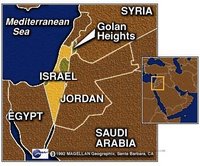
Noam Chomsky's popularity has risen ever since Hugo Chavez recently held up Chomsky's book Hegemony and Survival as a must-read, both after and before his speech at the United Nations. Chomsky, a highly respected linguist and philosopher from MIT, admits to his dual vocations, that of a teacher and researcher and the other lesser known one of a social activist. There are some things that make him unique. Firstly, being Jewish he has taken some strong stands against Israel's policy in the Middle East. Secondly, inspite of some fifty odd years of vocal social activism as an ultra liberal, he has no consistent political theory to propound like Samuel Huntingdon and Bernard Lewis. Finally, his popularity with die hard democrats does not spare them of his criticsm; he is just as critical of the Clintons and Kerrys of the world.
I just finished reading the book "Imperial Ambitions" where David Barsamain has Chomsky speak about the future of Social Security, the imminent threat of global warming, and mostly about the volatile situation developing in the world due to United States' intervention in Iraq. Chomsky is bold, honest, upbeat, witty and most of all alarmingly well informed in matters of global policy for a philosopher linguist. As a result he spins this web of persuasive dialectic for a disarmed reader and will not let him out, but convinced. He both informs and cautions the American public against government propaganda that works by making its citizens afraid; a tactic that he points out has been used by various American Presidents to allow them to carry out there imperialistic agendas. The one instance he gives of President Reagan's justification for the US war in Nicaragua, and then links it up with the current situation in Iraq and the Middle East, is particularly brilliant:
"On May 1, 1985 Reagan declared a national emergency in the United States because of the threat to the security of the United States posed by the government of Nicaragua, which was a two days’ drive through – I would note – at least one other country, Mexico, many times its size, from Harlingen, Texas, and Nicaragua was planning to take over the hemisphere! If you take a look at that Executive Order, which was renewed annually as a way of building up support for the U.S. war in Nicaragua, it has almost the same wording as the 2002 congressional declaration on Iraq. Just replace Nicaragua with Iraq...How much critical thinking and analysis does it take to determine how much of a direct security threat Afghanistan, Iraq, Iran, Syria and so forth are to a country that possesses the most powerful military in the history of the world, is bounded by two vast oceans and is bordered by two very peaceful neighbors?"
Chomsky can grow on you without you knowing, and that makes him worrisome. I have great respect and admiration for Chomsky, the eminent linguist who has made many significant contributions in the field of language aquisition. However, I am a little wary of his political writings because they have the word-power to sway a naive populace. No wonder The New York Times has called him “arguably the most important intellectual alive”, and The Guardian declared: “Chomsky ranks with Marx, Shakespeare, and the Bible as one of the ten most quoted sources in the humanities—and is the only writer among them still alive.”

